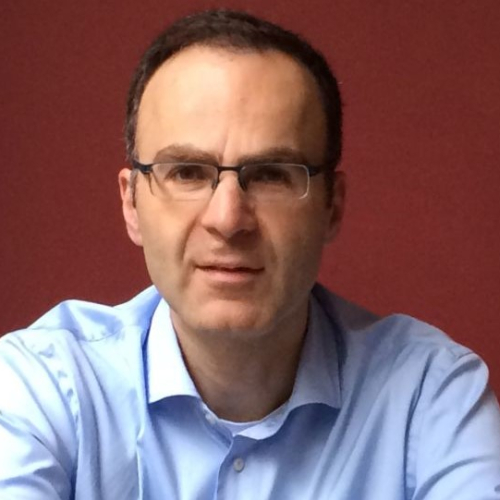
Professor Seena Fazel
I studied medicine in Edinburgh, and trained in psychiatry in Oxford. During my training, I took some time out to do research, primarily on the health needs and suicide risk of people in prison, and then completed higher training in forensic psychiatry. The intersection of health and justice has been a focus since this time, and I’ve enjoyed the clinical challenges of assessing and treating people with severe mental illness who are convicted of serious crimes, and contributing to understanding more about the causes and consequences of violent and suicidal behaviours in this population.
Another focus has been suicide prevention more generally, which remains a key public health challenge in all age groups and particularly in people with neuropsychiatric disorders. I’ve completed some of the largest population-based studies of suicide in people with traumatic brain injury, epilepsy, schizophrenia, bipolar disorder, and high-risk populations, such as people with chronic physical health conditions, those who have self-harmed, and individuals who have been convicted of violent crimes. In addition, I’m been studying real-world healthcare data to look for signals for potential and promising new preventative approaches to suicide, including commonly prescribed medications used for other purposes.
A major part of my research has been evidence synthesis, and I’ve completed systematic reviews on risk factors for suicide and violence risk, prevalence of common neuropsychiatric conditions in criminal justice and homeless populations, and prediction modelling in mental health.
Medicine requires better methods to predict so that prevention efforts can be targeted and personalised. So a new area of research of my group’s work has been the development and validation of ways to predict adverse outcomes in high-risk populations, such as people with severe mental illness. I lead a team at the department of psychiatry working developing scalable, evidence-based accurate risk models (https://oxrisk.com/), including for people in criminal justice (where such models are called risk assessments). Much of this work has been funded by the Wellcome Trust, and more recently by the National Institute for Health and Care Research.
A key challenge is to translate these research findings into practice and we work closely with clinicians, policy makers, and criminal justice. New work funded by the Oxford Health’s Biomedical Research Centre aims to address this. In addition, I sit on the Independent Advisory Panel on Deaths in Custody, a non-departmental public body co-sponsored by the Ministry of Justice, Home Office and Department of Health and Social Care, and work closely with public policy to develop and implement initiatives to prevent deaths in all forms of state custody (including secure hospitals, police custody, and prisons).
I supervise a range of MSc and DPhil students, and happy to hear from students interested in suicide research, forensic psychology and psychiatry, and prediction modelling in mental health and criminal justice.
Professor Seena Fazel

I studied medicine in Edinburgh, and trained in psychiatry in Oxford. During my training, I took some time out to do research, primarily on the health needs and suicide risk of people in prison, and then completed higher training in forensic psychiatry. The intersection of health and justice has been a focus since this time, and I’ve enjoyed the clinical challenges of assessing and treating people with severe mental illness who are convicted of serious crimes, and contributing to understanding more about the causes and consequences of violent and suicidal behaviours in this population.
Another focus has been suicide prevention more generally, which remains a key public health challenge in all age groups and particularly in people with neuropsychiatric disorders. I’ve completed some of the largest population-based studies of suicide in people with traumatic brain injury, epilepsy, schizophrenia, bipolar disorder, and high-risk populations, such as people with chronic physical health conditions, those who have self-harmed, and individuals who have been convicted of violent crimes. In addition, I’m been studying real-world healthcare data to look for signals for potential and promising new preventative approaches to suicide, including commonly prescribed medications used for other purposes.
A major part of my research has been evidence synthesis, and I’ve completed systematic reviews on risk factors for suicide and violence risk, prevalence of common neuropsychiatric conditions in criminal justice and homeless populations, and prediction modelling in mental health.
Medicine requires better methods to predict so that prevention efforts can be targeted and personalised. So a new area of research of my group’s work has been the development and validation of ways to predict adverse outcomes in high-risk populations, such as people with severe mental illness. I lead a team at the department of psychiatry working developing scalable, evidence-based accurate risk models (https://oxrisk.com/), including for people in criminal justice (where such models are called risk assessments). Much of this work has been funded by the Wellcome Trust, and more recently by the National Institute for Health and Care Research.
A key challenge is to translate these research findings into practice and we work closely with clinicians, policy makers, and criminal justice. New work funded by the Oxford Health’s Biomedical Research Centre aims to address this. In addition, I sit on the Independent Advisory Panel on Deaths in Custody, a non-departmental public body co-sponsored by the Ministry of Justice, Home Office and Department of Health and Social Care, and work closely with public policy to develop and implement initiatives to prevent deaths in all forms of state custody (including secure hospitals, police custody, and prisons).
I supervise a range of MSc and DPhil students, and happy to hear from students interested in suicide research, forensic psychology and psychiatry, and prediction modelling in mental health and criminal justice.